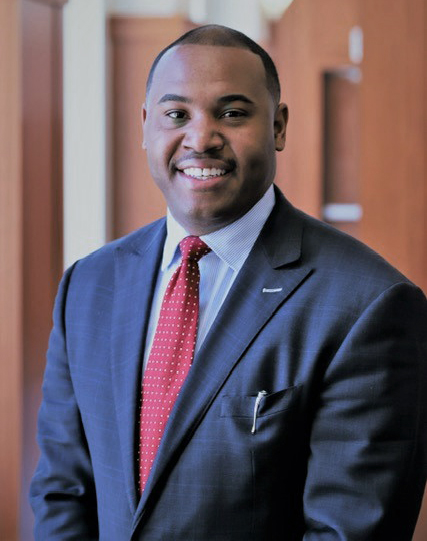When the fight is personal
Alumnus takes on Alzheimer’s, dementias as a policy leader in Ohio
By Laurie B. Davis
Caring for people with Alzheimer’s and other dementias has long weighed heavily on families and caregivers. Currently, 5.8 million Americans suffer from these diseases, and the Alzheimer’s Association projects that by 2050 — as the baby boomer generation ages —14 million people will get Alzheimer’s.Fighting against this “elusive” disease is personal for Trey Addison (Univ Coll ’11), who leads all of the lobbying, advocacy, and government and public affairs components for the state of Ohio’s Alzheimer’s Association. Previously, Addison worked as an intern and political and policy coordinator for U.S. Sen. Sherrod Brown, and director of government affairs for AARP.
“My great-grandmother had dementia. Her daughter has dementia. My grandfather is showing early signs,” says Addison. “They’re all on the same side of the family, and for me, it’s one of those instances where you can see the disease from a multigenerational perspective. You start to ask yourself, is my mom or one of my aunts or uncles going to get it, will it pass on to me? I want to take time during my career and fight against something that’s bigger than me and that’s impacting my family,” says Addison.
The disease claims more lives every day. In Ohio, 230,000 people are living with some type of dementia, which causes memory loss, confusion, agitation, wandering, among many other cognitive, behavioral and mood issues. Caregivers of those with Alzheimer’s often are family members, and likely they suffer from stress and fatigue. In 2019, Alzheimer’s caregivers have logged 18.5 billion hours of care, according to an Alzheimer’s Association report.
The disease also is taking its toll on Medicaid budgets. “Alzheimer’s and dementia are the costliest diseases in the country,” says Addison. To sustain a patient’s life, many around-the-clock services are needed. “As we think of the government-funded aspects of health care, that’s a disease that could bankrupt the country,” he says.
Making strides
“The Alzheimer’s Association is helping the government by trying to find a more efficient and effective way to deal with the disease,” says Addison.
With the passage of Senate Bill 24, written to establish a new state taskforce, some of the most important issues with Alzheimer’s and dementias may be addressed. The Ohio Senate passed the legislation, which now is pending a floor vote in the Ohio House. The State Alzheimer’s Disease and Dementias Task Force will be charged with developing a comprehensive, state action plan to prepare for the growing impact of dementia-related diseases. That’s step one, says Addison.There are three specific areas of focus: providing high-quality training for those who care for Alzheimer’s and dementia patients; addressing respite care for caregivers; and making sure first responders are trained to approach and handle individuals with a memory loss disease.
Addison also works at the federal level. “We’re doing a couple of unique things, which for me, the most important is the Younger Onset Bill,” he says. The Older Americans Act covers a lot of services for older adults, which kick in at age 65. “If there’s someone who is 55 and gets dementia, they should be able to get the same services as someone who is 65,” says Addison. “We’ve got to be able to build an apparatus that makes sure those folks can transition and still sustain their lives,” he says of the people who get Alzheimer’s earlier in life.
Research may be the key to a broader solution. “The Alzheimer’s Association fought for and received a rapid increase of more than $600 million to fund research around the disease, which is significant,” says Addison. “That puts us financially more on par with the other top 10 diseases, such as diabetes and cancer. It’s an issue that both federal and state governments are aware of and saying we’ve got to provide the resources and try to figure this thing out — to extract a cure or something that can slow down the memory loss,” says Addison.
Everything leads to service
Addison grew up in Dayton, Ohio, and decided to attend UToledo. “It’s probably one of the best decisions I’ve ever made in my life, other than marrying my wife,” he says. “I say that because at the time I really didn’t know what I wanted to do. When I got to UToledo, the professors and the administrators were extremely helpful.”
That guidance prompted Addison to get involved. He became president of the Black Student Union, vice president of Campus Activities and Programming, a member of Blue Key Honor Society, and was appointed by Ohio’s governor to the University’s board as a student trustee. He also studied and did research abroad in South Africa and Mozambique.
“It was a breadth of experience and a unique opportunity to go on that UToledo journey,” says Addison.
The desire to serve others, primarily seniors in his current professional role, continues to drive Addison. “It’s exciting to serve people. There’s no better feeling in the world,” he says.








